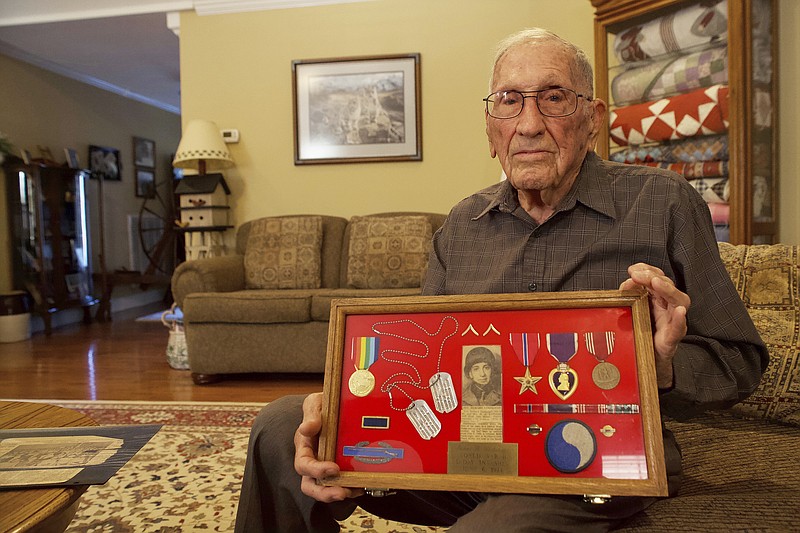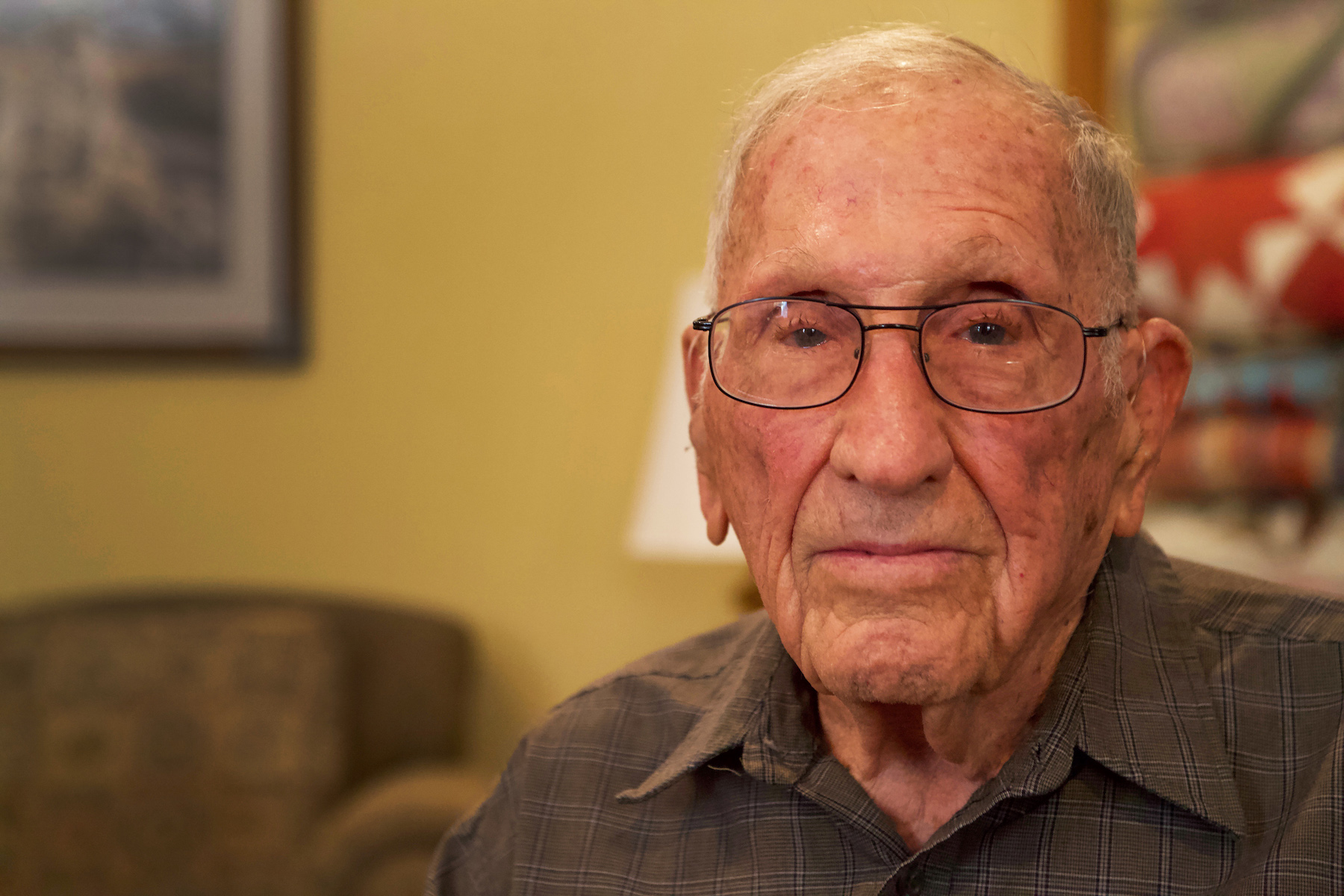The movements were second nature to James Yarbrough by June 6, 1944. The 19-year-old had trained for his job for a year, traversing the northern banks of the English Channel in a Higgins boat. He practiced with English and Scottish military units. He knew the mountainside and his job duty as a scout.
So on June 6, otherwise known as D-Day, the Chickamauga, Georgia, man was not nervous. He did his job standing on the right side of the landing craft's ramp with more than 30 soldiers behind him.
But no amount of training could have prepared Yarbrough for when the ramp dropped, and German bullets and firepower began to ravage the world around him.
"I had done it a gillion times, until we started getting killed," the 94-year-old said. "We just got wiped out. In my boat only three of us got out, out of 33."
Yarbrough's landing craft dropped the gate too early after hitting a German barrier in the water the boat captain mistook for the beach. The soldiers, including the Tennessee teenager, jumped into the water. Yarbrough, who said his weight at the time was just over 100 pounds, was in over his head. The more than 150 pounds of gear strapped to his body - ammunition bandoliers, sticks of dynamite, a three-day supply of food - began pulling him under.
Struggling beneath the surface, Yarbrough pulled the hunting knife he kept in his boot. He had sharpened the knife regularly since he volunteered for the army. If not for the knife and his years as a YMCA lifeguard, he said, he would have died in the English Channel. But when he cut himself loose, pushed upward to gasp for air, the horror of war for him was still just beginning.
BIO
Name: James YarbroughAge: 94Branch of military: U.S. ArmyYears of service: 1943-1945
Yarbrough surfaced amid a floating group of dead and dying soldiers. Among them were his friends, people he trained alongside for months. He could barely see, his face swollen from a blast of shrapnel, his nose and jaw broken. He stayed with the group in the water for hours, letting the waves push him closer to the shoreline. He knew he could not swim to safety on his own.
"The only protection I had was them," he said. "I had to swim with them and go with them. If I would've came out of that group, [the Germans] would've known that I was alive. They were zeroed in on us."
Hours later, Yarbrough got to the shore. He pressed his body against the rugged cliffs, moving slowly higher to be out of sight from the Germans above and the crashing waves below. He maintained that position for hours until the mounting fleets of ships and soldiers moved the D-Day invasion into the Allies' favor. In the hours he waited, he could see the devastation in the water in front of him - barely able to see the water for all the gear and dead bodies.
The decades that have passed since that day have still not given Yarbrough the words to explain what he saw.
"It was real bad. You couldn't explain it. You couldn't describe it. It's impossible," he said.
Yarbrough helped the Allied forces take Omaha Beach and was taken to a hospital in Saint-Lô, France. He was given a short recovery before being sent back to the frontline, then to the Battle of the Bulge, a weeks-long battle in the winter of 1944-1945.
A nearby explosion during the battle knocked Yarbrough out, causing lifelong hearing damage. When he came to, Yarbrough was piled among the dead, one of his dog tags placed in his mouth, a tradition used to later identify the dead.
Yarbrough was taken to a hospital in Belgium to recover. He learned the war had ended, though it would be months before the Southeast native would return to the states. He was happy to hear the news, though he struggled to visualize the conflict ever being over. He could not sleep. He could not eat. Yarbrough had what doctors at the time described as "shell shock" or "battle fatigue," which would later be labeled post-traumatic stress disorder.
The 94-year-old still has trouble sleeping, something he said he does not think will ever stop.
"It's your little secret in a way but it destroys you, too," he said. " You can't describe it. You can't get it out of your mind. - It's inside of you. Some nights, I'm there again, still today."
Yarbrough has his awards, among them two Purple Hearts, encased alongside his dog tags, including the one that was placed in his mouth. He often has trouble with the phrase "hero" being thrown around in talk of war. He does not get mad at the label. He just thinks people do not understand what war is, he said. He was doing his job, his duty, he said.
"You do it because you're supposed to do it or you want to live or something," Yarbrough said. "It's not a heroic-type situation or 'I want to be a hero.' It ain't that. I know I've done some things for guys and they've done some things for me. It wasn't a heroic thing. It was something you had to do. This man can't walk, help him. It was that type of a situation."
Contact Wyatt Massey at wmassey@timesfreepress.com or 423-757-6249. Find him on Twitter at @News4Mass.

